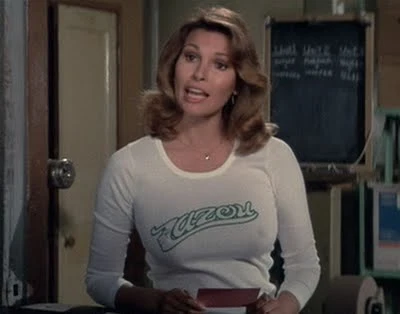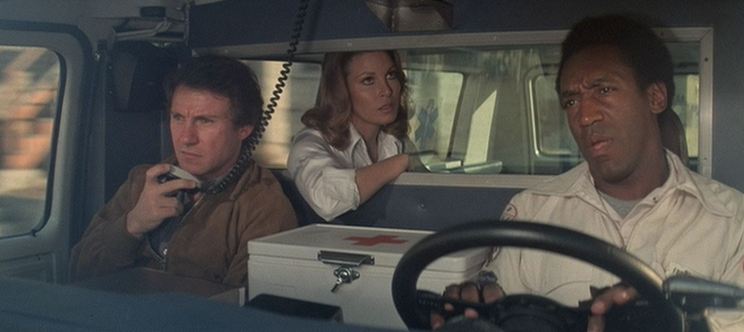For my family, December 25th isn’t only Christmas. It’s also Grandma’s birthday. A double holiday. From this day forward, the occasion will be bitter sweet. While I had a surprisingly nice Christmas (my family celebrates this tradition as well as the Jewish tradition earlier in December), this is mainly where my thoughts are today.
My maternal grandmother, Eleanor Charms Seifter, died in May of 2012. We were extraordinarily close. The loss is tremendous but it’s hardly mine alone. If you knew her, you adored her. If you didn’t know her, trust me: She would have loved you.
This is what I said about her on May 6th of this year. I wanted to share it here because, if I in any way managed to capture her in words, you will see that she was a person well worth knowing.

My grandma Eleanor was the single most decent, positive, and purely good person I’ve ever met in my life. To everyone who knew her, she was absolute light.
She transcended adjectives, because there haven’t been enough complimentary descriptive invented to encapsulate just how good she was.
She transcended tenses, because I now and will always struggle to use the past tense, with words like “was” and “did”, when she still feels so present, even now.
I could write a tribute to her once a year, once a month, once a day, and I’d still be able to tell you different things about my grandma every single time. For today, it’s only a question of which laudatory comments I happen to settle upon in this moment. There truly are that many good things to say about my grandma Eleanor, because that’s a measure of how much goodness she put out into the world.
Honestly, with no forced humility, I have to say that I don’t think I’m personally equipped to eulogize a person this special, this unique, this wonderful, this lovely. A job like that should really be part of the presidential package, or else it should fall to one of the great poets, composers, or painters. I may be a decent writer, but I am not up to this task. It is, however, safe to say that my grandma wouldn’t have minded me saying a few words. My grandma enjoyed and supported my writing – although she definitely wished I’d write less about monsters and aliens and such, and also that I’d stop enlisting so many naughty words.
For that reason, I’m maybe not the one who’s most ideally suited to the task of summing up such a rare person and such a beautiful life. But I am someone who benefited dramatically from proximity to her, so I can say a little about how much she meant to me.
At the graveside ceremony last week, I talked about my grandmother’s endlessly inspiring bond with my grandfather, and how much the two of them meant to me in tandem. My grandfather was the only hero I’ll ever need. He was a brilliant mind, a generous spirit, and a formidable humanitarian. He was a truly great man. I idolized my grandfather. But I needed my grandmother.
She was a beacon of warmth and kindness, really an impossible creature. Even my grandpa lost his temper once in a while. Can you imagine a human being knowing me for thirty-four years and never once losing their temper? I have trouble imagining it myself, despite the fact I knew one. Can you imagine a human being whose eyes lit up and whose smile broke wide every single time you walked in the room? I can’t, but yet again, I knew one.
This is someone whose entire essence was the definition of goodness. She managed this incredible feat of symbolizing all things sweet and kind – she was a symbol! – while remaining the most fun, most down-to-earth person you could ever meet.
I know, right? Sounds like I’m describing the Pope? No offense, but my grandma has most popes beat. She never judged anybody.
I know that grandchildren have the tendency to idealize their grandparents, at least all the ones who are worth a damn – sorry: darn – but with my grandma, all that work was done already for me. She was the ideal person. Truly.
I didn’t mean to bring up the subject of religion and faith in such a flippant manner just now, because those avenues are where many people understandably choose to turn at a moment like this one, when we’ve lost such an irreplaceable human being. The moment my grandma died, standing there in that emergency room with the doctors and emergency personnel filing out the door, the single thing I was able to say to my mother was, “A whole lot of goodness is gone from the world.” I still feel that way. Those words are true for many of us. It’s an enormous loss, on multiple layers of my existence and maybe yours.
My grandma wasn’t famous – she doesn’t have the tribute on the front page of the New York Times Arts & Leisure section which she’d have if our society quantified decency the way we quantify celebrity. She wasn’t built that way. She was humble. She was as humble as she was monumental. She was an elementary school music teacher, a writer, a lifetime learner and a lifelong educator. She was good to every single person she met. She was better than good: She treated everybody the way most people treat family. She treated friends and strangers alike. She met all people with love.
She was kind, she was generous, she was welcoming, she was loyal, she was encouraging she was funny, she was creative. (Now I’m getting into exhausting that adjective supply, which I promised I wouldn’t do.) The bottom line is that my grandma behaved in this world exactly the way we learn from a young age that we are supposed to behave in this world. When I met with the rabbi earlier this week to tell him about my grandma, I told him that exactly. I am honored to have studied with the rabbi in my youth, but as I told him the other day, I grew up with the exemplifications of Jewish teachings – not to mention Christian teachings, Catholic teachings, you name it – right down the block. Repeatedly, in America, we go to temple or church and we are given models of how to behave, and repeatedly, we fall short – myself as much as anyone. But my grandmother embodied morality and decency, with very little external guidance that I could see.
She was good by nature, and acted that way on instinct. But doing so, she amazed everyone. My grandma amazed me. She made me believe in impossible things. What I’m telling you really, in no uncertain terms, is that my grandma gave me my faith. Whatever faith I do have, please understand, I have it because I knew my grandmother so well and observed how she operated. I know the best way to be on this Earth because I saw how she was. Can there be a higher tribute any one person can give another than that?
Of course, my grandma had some help. This is the part where I’d start listing all the people who kept my grandma going through tough times, but if you’re within a mile of these words right now, you’re among that number. My grandma loved you all so much. But if you’re a celestial being on earth, as I seem to be (aptly) describing her, then you could have no better advocate than my mother, Madeleine, whose love for my grandmother made her a relentless champion to keep my grandma alive longer than any doctor would have allowed. My mom ensured that my grandma’s house was hallowed ground, full of remarkable ladies, including all of the devoted staff who were by the bedside in the past years. You don’t have to go to the movies this summer – those are the Avengers sitting over there.
Most incredibly, we had four generations together for four whole years – Grandma, my mom, my sister, and my niece. I can’t tell you what a profound thing that has been to witness. If there are words, I don’t have them. Maybe my part in it was to be a witness, to record it and to be able to share it through these words and whichever words I write in the future. Because unlike my mom, my sister, my niece, my uncle, my aunt, my cousins, and all the various and sundry Seifters and Charms’s, all of whom resemble or represent my grandmother in apparent ways – I sometimes struggle to see my grandma in myself. My temperament is far more tempestuous, with tendencies towards the morose and the isolating. These are some of the adjectives that never ended up anywhere close to my grandma, no matter how much she went through.
I was there the day she found out she lost her beloved brother Bernie and her beloved sister Glady in the same morning. I was there when she lost my grandpa, her inseparable husband of over six decades. I was there when they took her voice away and confined her to that bed. Any one of those things, or their equivalents, would have broken me. I would have given up. My grandmother never even considered such a notion. The last time I saw her alive, she was exactly as she always was; eyes lit up, smile broke wide, nodding at me in an expression of love. “Go home. Get some rest.”
And as I contemplate that image, I remember one day, not too long ago, when I looked into the mirror and saw my own eyes and noticed something modestly revelatory: I have my grandma’s eyes. Not her facial structure, and certainly not her irreplaceable spirit, but if you’ve spent as much time as I have staring into her eyes, and then looked into mine, you might see it. It’s the same shade of bluish-green bordering on hazel, the same shade, right down to the specks of brown in the irises. It’s the only physical attribute of hers I feel I’ve been blessed with, but if you’re into symbolism, it’s a big one.
Because then I think, if she could experience everything she experienced, if she could look at this world that is so imperfect and so brutal and which makes us all so sad at times, if she could look upon all that with those eyes and still manage to remain as positive and optimistic and loving as she was, then couldn’t I try to look at life the same way?
Couldn’t anyone?
Couldn’t everyone?













































